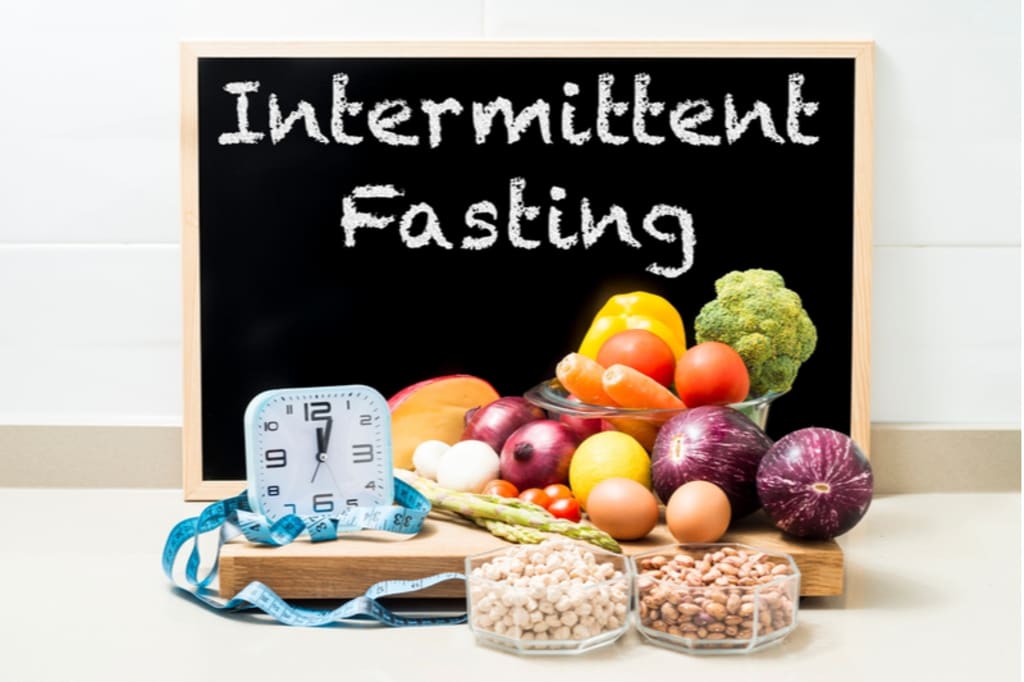Intermittent Fasting and Weight Loss
A Simple Guide to Understanding Intermittent Fasting, Its Benefits, and Practical Tips

The science behind this popular weight loss approach, how it works, potential side effects, and practical suggestions on what to eat and avoid will be covered. This is educational, not clinical advice. If you have diabetes or use medication, ask your doctor before changing your diet.
What's intermittent fasting?
The intermittent fasting (IF) diet alternates between fasting and eating. Two main techniques are 5:2 and 16:8. Limiting when you eat rather than what you consume is the main principle.
Science of Intermittent Fasting
What's the science behind intermittent fasting? Insulin helps break down carbs into glucose when you consume. Your cells use glucose for energy or store it as glycogen in the liver and muscles. Extra glucose is turned into fat and stored in various body areas if you ingest more calories than your body needs.
Fasting lowers insulin levels, causing the body to burn stored energy. Your liver glycogen will be used first. Your body breaks down fat for energy when glycogen stores are low. This is why intermittent fasting helps lose weight.
Fasting Intermittently
The two most common intermittent fasting approaches are:
The 5:2 Diet: You eat regularly five days a week and 500-600 calories on the other two.
The 16:8 Diet: Fast for 16 hours and eat for 8 hours. Most people do this everyday or practically daily.
Both approaches create calorie deficits, which aid weight loss. However, you must watch what you eat throughout meals. Overeating or eating high-calorie items can invalidate intermittent fasting.
Intermittent Fasting Foods
Healthy eating is essential when not fasting. Consider including these five food groups in your meals:
Muesli, whole grain bread, pasta and brown rice are whole grains. Whole grains are high in fibre, vitamins, and minerals and release glucose slowly.
Skinless chicken, turkey, and white fish like haddock and cod are high-protein foods. Salmon, sardines, tuna, and mackerel are high in omega-3 fatty acids, which are good for the heart and brain.
Skimmed milk and Greek yoghurt are low-fat dairy options. Calcium-rich dairy products are essential for bone health.
Vitamins, minerals, and fibre come from fruits and vegetables. Eat a range of colours and varieties.
Lentils, Beans, and Pulses: High in protein, fibre, vitamins, and minerals, low in fat. They enhance soups, stews, and salads.
Avoid these foods while intermittent fasting
Intermittent fasting requires avoiding specific foods:
Refined carbohydrates are heavily processed and contain minimal grain. For instance, white flour, bread, rice, pasta, and many breakfast cereals. They can induce rapidly rising blood glucose.
Sugar: Avoid table sugar, maple syrup, sugary drinks, candies, chocolates, ice creams, and biscuits.
Complex Animal Fats: Avoid saturated fats like dripping and lard. Limit saturated-fat-rich red and processed meats like bacon and sausages.
Saturated fat and added sugar make cakes, pastries, biscuits, pies, other convenience foods rich in calories.
Possible Intermittent Fasting Side Effects
Intermittent fasting may cause headaches and constipation. Hydrating and eating fruits and vegetables can reduce them. Consult a doctor before intermittent fasting if you have health issues.
Intermittent Fasting Success Tips
Stay Hydrated: Drink water all day, especially while fasting.
Eat Balanced Meals: Choose vitamin- and mineral-rich foods.
Listen to Your Body: Adjust your fasting schedule if you feel dizzy, lightheaded, or exhausted.
Plan Your Meals: A meal plan might help you fast and eat healthy.
It takes time to lose weight, so be patient and consistent.
Intermittent fasting can help you lose weight and get healthy. You can maximise this diet by understanding the science and eating well. This guide is for educational reasons only; consult a doctor before making any major diet changes, especially if you have a medical problem.
This guide was helpful, so like the article, comment with your intermittent fasting experiences, and subscribe for more health and wellness information. For more information, Thanks for reading, and until next time, be safe!
About the Creator
Ms. Jahan
A writer with a passion for storytelling, has written in various genres, including articles, short stories, and reflective essays to share their musings and creative adventures.
Enjoyed the story? Support the Creator.
Subscribe for free to receive all their stories in your feed. You could also pledge your support or give them a one-off tip, letting them know you appreciate their work.






Comments
There are no comments for this story
Be the first to respond and start the conversation.